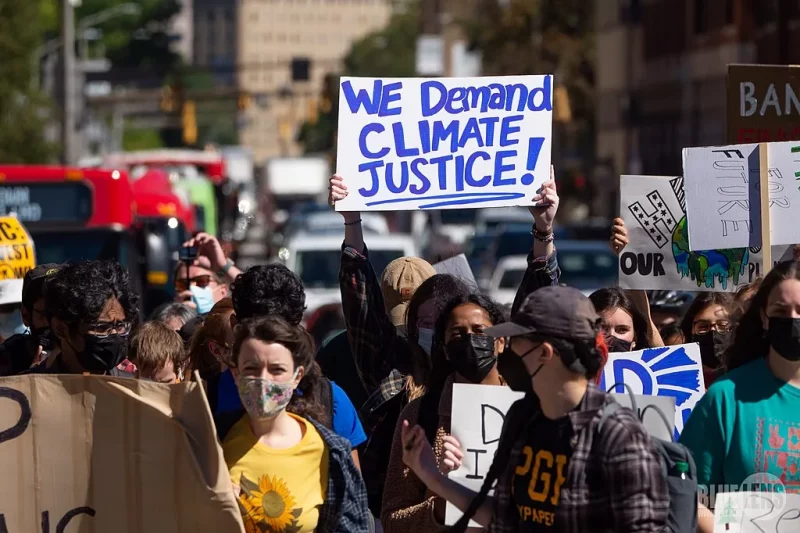At the NAACP, Racial Justice Means Climate Justice
Share
Explore Our Galleries
Breaking News!
Today's news and culture by Black and other reporters in the Black and mainstream media.
Ways to Support ABHM?
by Maya Richard-Craven, Word in Black
Abre’ Conner, the director of the NAACP Center for Environmental and Climate Justice, refuses to let Black experiences be erased from the movement.

The NAACP has a long-standing history of fighting for climate justice. That’s because “environmental justice and civil rights are interconnected,” says Abre’ Conner, a Black woman and attorney who became the director of the NAACP Center for Environmental and Climate Justice in 2022.
“Civil rights are about understanding the interconnection of how Black folks or how other historically disadvantaged communities are disproportionately harmed as it relates to an issue that impacts us all,” Conner says.
She works alongside a small yet powerful team dedicated to acknowledging and combating environmental injustice. She informs and helps organize NAACP volunteers across the country, both on the state and local level, who are engaged on the ground in cities like Baltimore, Cleveland, and Jackson, Mississippi.
The water crisis in Jackson has been a major area of focus for the center. In August 2022, the water crisis in the 82% Black city of nearly 150,000 residents reached new heights, and there was a city-wide boil down order due to contaminated water.
[…]
“We have been doing a lot of work in Jackson to try to help this predominantly Black city, and to rebuild its water infrastructure system. When they start to get resources to rebuild, you’ll have state legislators trying to pass a number of bills to take the money away that the federal government is now allotting to Jackson so they can rebuild,” Conner says.
Read the rest of the article here.
Learn more about the NAACP and similar organizations here.
Read more Breaking News here.









Comments Are Welcome
Note: We moderate submissions in order to create a space for meaningful dialogue, a space where museum visitors – adults and youth –– can exchange informed, thoughtful, and relevant comments that add value to our exhibits.
Racial slurs, personal attacks, obscenity, profanity, and SHOUTING do not meet the above standard. Such comments are posted in the exhibit Hateful Speech. Commercial promotions, impersonations, and incoherent comments likewise fail to meet our goals, so will not be posted. Submissions longer than 120 words will be shortened.
See our full Comments Policy here.